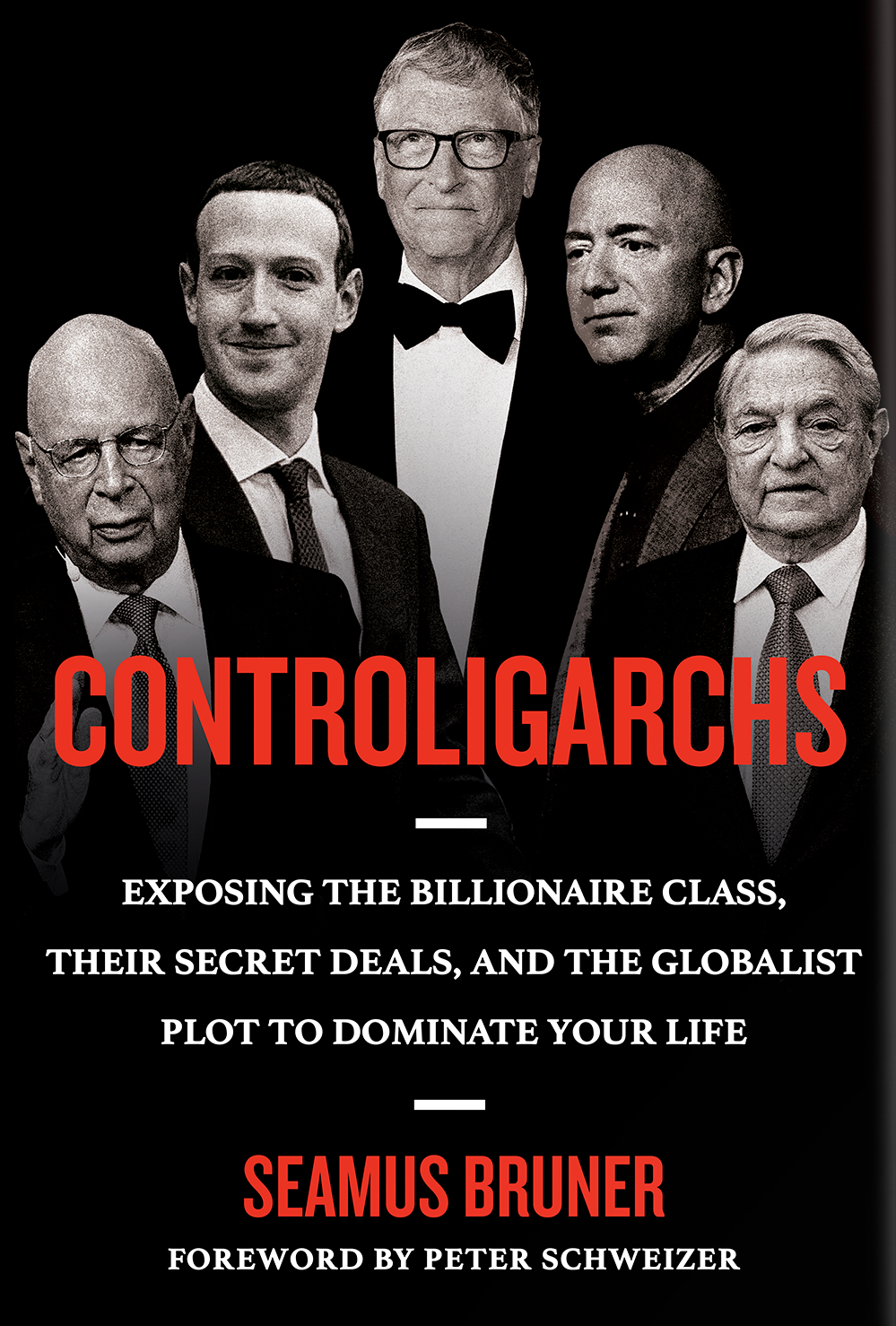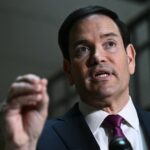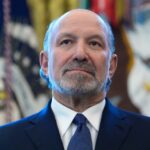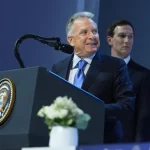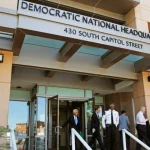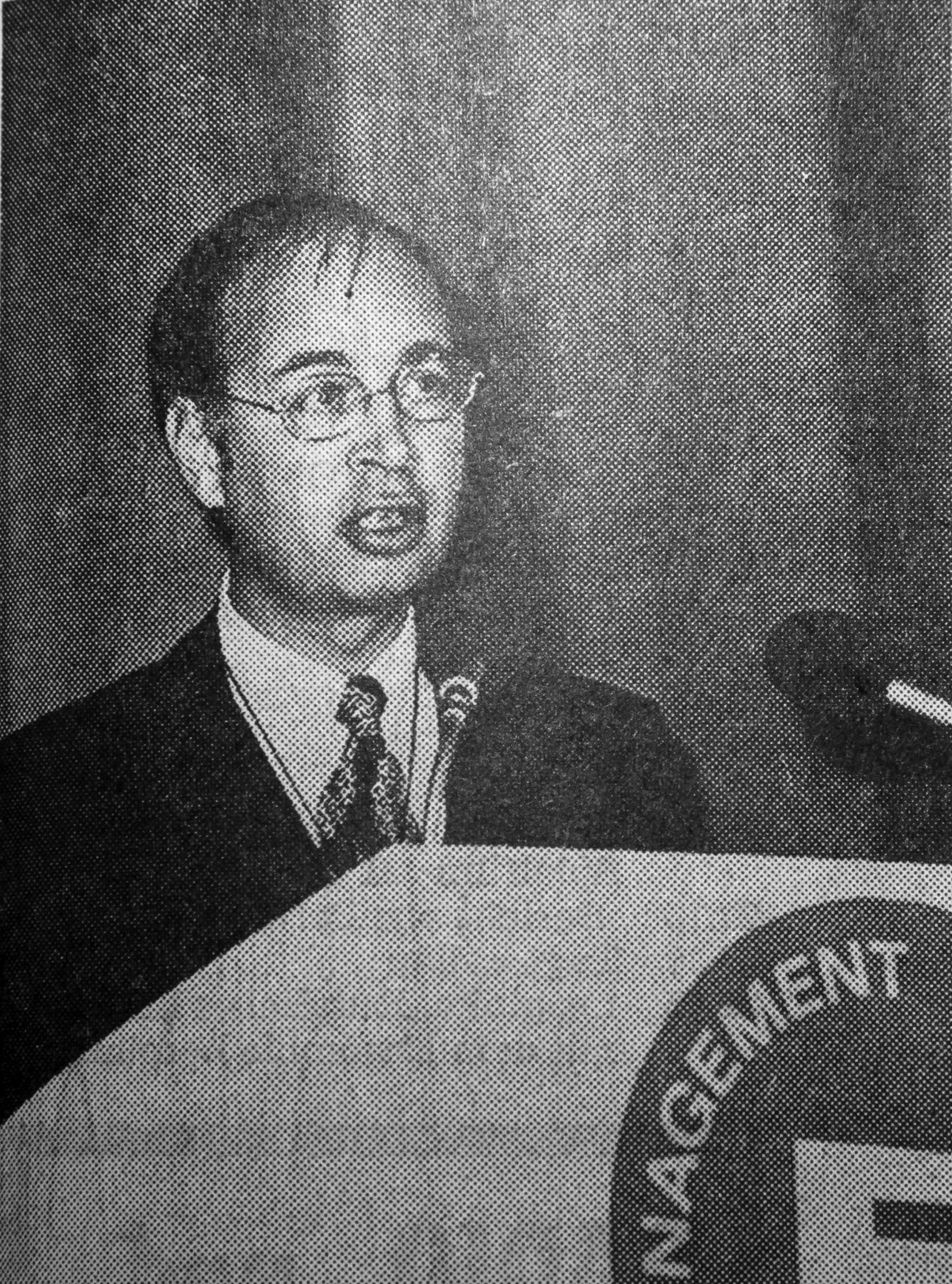
When a young bespectacled academic set up something called the European Management Symposium in Davos, Switzerland more than fifty years ago, few could have guessed that it would become the most elite country club in the world. And now Klaus Schwab's World Economic Forum is planning to ramp up its control over every aspect of our lives.
The post Exclusive—Seamus Bruner: Klaus Schwab Transitions to a Background Role as the WEF Agenda for Control Takes Center Stage appeared first on Breitbart.
When a young bespectacled academic set up something called the European Management Symposium in Davos, Switzerland more than fifty years ago, few could have guessed that it would become the most elite country club in the world.
Klaus Schwab started his symposium with $6,000 in seed money and turned it into the World Economic Forum (WEF)—an impressive cash machine that generates approximately $500 million per year.

Klaus Schwab speaking during the European Management Symposium, the predecessor of the World Economic Forum, in Davos, Switzerland, in 1974. (World Economic Forum/Flickr)
As recently as last year, the consensus from WEF insiders was that Schwab would likely die in office—like a monarch or the Pope. In 2017, Schwab had tapped the former Norwegian foreign minister, Børge Brende, to serve as president. Brende is widely described as a “conservative” politician though his high-ranking positions at the United Nations, the Bilderberg Conference, and a bevy of other supranational globalist side gigs, his resume betrays his Schwabian priorities.
Before joining WEF, Brende created a scandal in Norway when his office was accused of violating the country’s foreign aid principles by funneling millions of dollars to the Clinton Foundation.
Despite Brende’s 2017 promotion, Schwab officially remained in full command of the organization. And it is easy to see why the prototypical “Davos Man” might want to remain in power: Davos has been extremely profitable for the Schwab family—especially Klaus and his wife who’ve raked in millions of dollars to their own pockets and tens of millions to their private foundation.
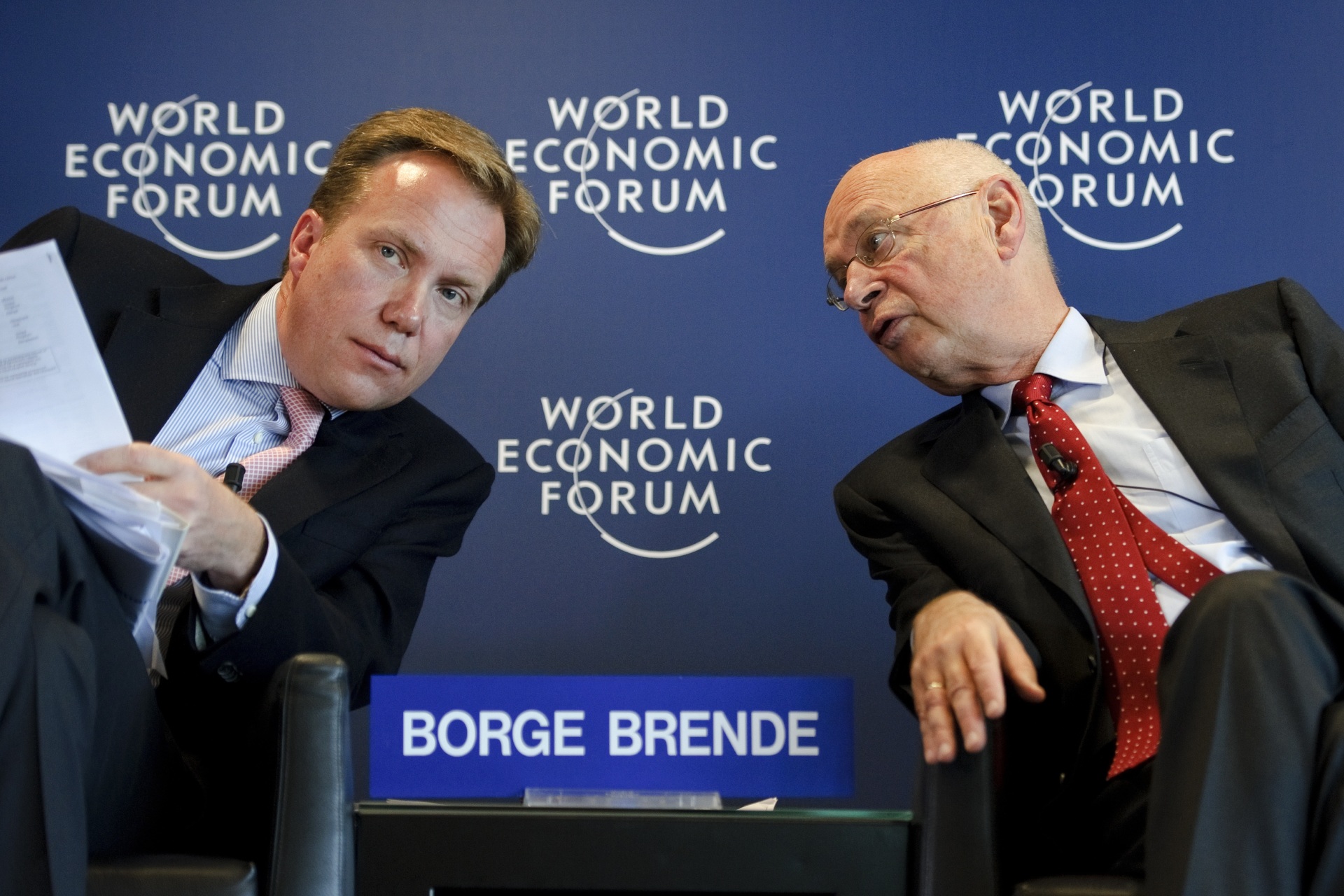
World Economic Forum (WEF) Founder and Executive Chairman Klaus Schwab (right) speaks with Managing Director Borge Brende on January 18, 2012, during a news conference at the WEF headquarters in Cologny, Switzerland. (FABRICE COFFRINI/AFP via Getty Images)
Schwab’s children and nephew have all been on WEF’s generous payroll over the years and the Schwab’s private air travel, meals, and a palatial estate (that was conjoined with the posh Davos headquarters campus after WEF spent $80 million to purchase the adjacent parcels) were just some of the many perks that the WEF founder enjoyed.
But this week, Schwab announced that he will indeed be stepping down as WEF’s Executive Chairman by January 2025 when he will assume his new role of Chairman of the Board of Trustees.
This may feel like a distinction with minimal difference and that is because it is. Schwab’s successor—widely expected to be Brende, who has been running the day-to-day for the past year—will be handpicked by him, according to Article 11 of the WEF’s governing statutes which states that “the founder designates his successor.”
The more important transition, however, is the one that the forum itself will be making: “from a convening platform to the leading global institution for public-private cooperation.” Translation: Davos will be less of a confab of billionaires and bureaucrats flying on private jets to an exclusive conclave in the Swiss alps to virtue signal their concerns of climate change and more involved in determining the government policies that dominate every aspect of our lives.
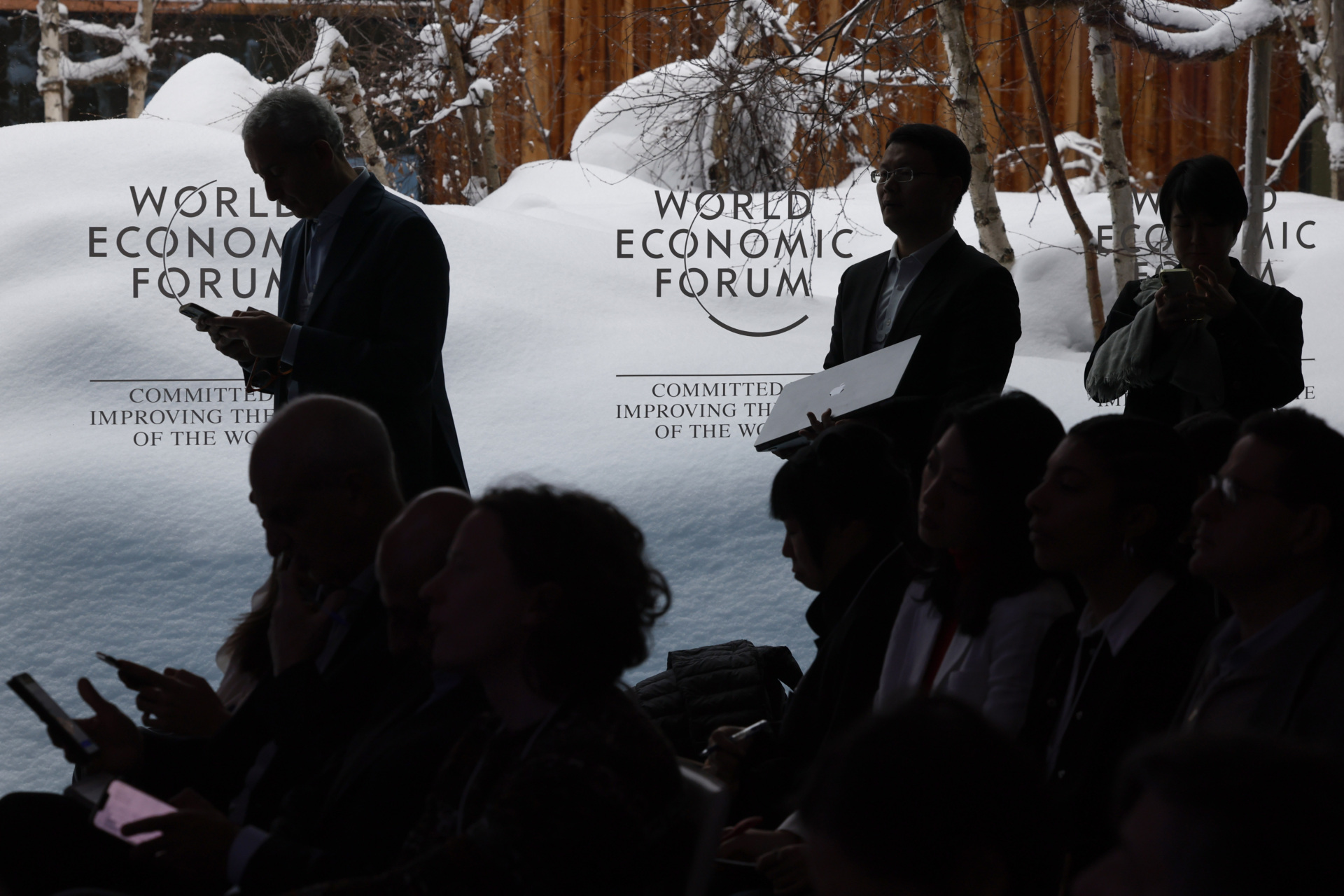
Attendees in the Congress Center on the closing day of the World Economic Forum (WEF) in Davos, Switzerland, on Jan. 19, 2024. (Stefan Wermuth/Bloomberg via Getty Images)
As my book Controligarchs documents extensively, “public-private partnerships” are the preferred method for unelected multinational elites and thought leaders from the globalist NGOs and think tank intelligentsia to exert their political will while avoiding any form of transparency or accountability. It means that corporations with loyalty only to Davos are granted the powers of the state. It means that the state can hide behind the secrecy granted to corporations to protect intellectual property and proprietary work products.
The COVID pandemic response—the lockdowns, the mandates, the vaccine passports— was a public-private partnership. The de facto abolition of the First Amendment via big tech censorship of “misinformation” is a public-private partnership. The use of “inclusive” (read: woke) digital education programs to indoctrinate students is a public-private partnership. Addressing the so-called climate crisis—which means everything from banning your favorite cars, to you gas-powered stoves, to even making meat prohibitively expensive—is achieved via public-private partnerships. Tackling threats of mass unemployment that may result from the artificial intelligence revolution will require public-private partnerships. WEF has plans for all the above and more.
The WEF’s role as the world’s leading institution for public-private partnerships has been obvious since Schwab announced the Great Reset, and even before that. But if you said that the WEF wants to control everything via cooperation with world governments, you would have been called a conspiracy theorist. Their stated mission, until now, was “Improving the State of the World.”
By announcing a pivot from a “convening” organization to an organization with direct influence over public (read: government) activities, they have acknowledged that not only is the WEF not going anywhere, but they plan to ramp up their control over every aspect of our lives.
Seamus Bruner is the author of Controligarchs: Exposing the Billionaire Class, Their Secret Deals, and the Globalist Plot to Dominate Your Life and Peter Schweizer’s Head of Research at the Government Accountability Institute. Follow him @SeamusBruner
